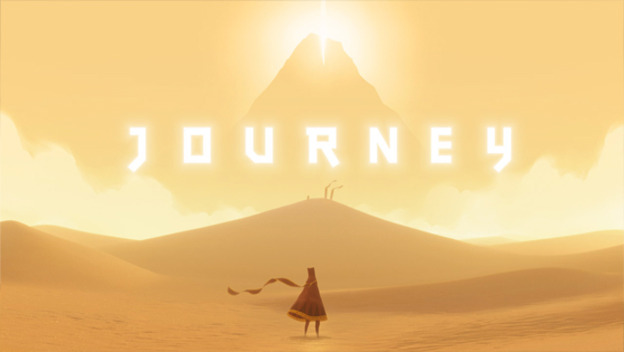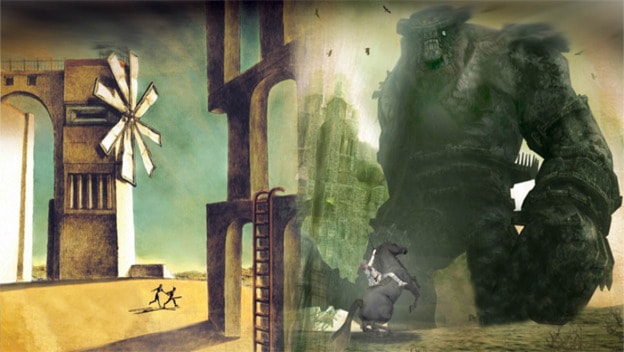Full disclaimer: I like these games too. With that out of the way, provided you’ve put down your torches and pitchforks, let’s continue.
That’s all well and good, but we’re getting nowhere fast with just “some people like to do what they want” to go on. So let’s go the actual meat of these games to get a better idea of what they’re worth, and, more importantly, if they deserve the fame they receive. (Journey was nominated for Game of the Year, after all.)
For this mini-critique, let’s pick on ICO. You can safely sum this cutesy little tale up as “You play as a young boy with horns as he attempts to escape imprisonment in a castle at the hands of an evil witch, all while protecting a silent maiden who agrees to accompany you.
Now let’s rip that ball of creativity to shreds.
The core of ICO’s gameplay consists of puzzle-based exploration and one-button combat. Challenge is always kept to a minimum, as puzzle solutions are made clear by in-game hints after a short period of time. Controls are often finicky and frequently lead to accidental deaths and retrying. A plot is never truly explained, and the small cast is left entirely undeveloped. Environments consist of connected portions of a sprawling castle that are generally fairly similar—though a machine-filled cavern near the end-game does add a bit of variety. Sound effects and music, however, are extremely well done—which makes the sparse character voices somewhat disappointing.

On paper, ICO can easily be called a fundamentally terrible and primitive game. But, as any gamer knows, you can’t take that at face value. Yes, the game is short (six hours at most), easy, and somewhat “kiddy.” That’s not what people who found it interesting—those who followed it in anticipation—were looking at. ICO is appealing because, despite its flaws, the game entices the player to explore and portrays a story well. Everything that Team Ico envisioned comes together to create a breathtaking soundscape and satisfyingly bittersweet tale between two innocents. It was even grand enough to attract the attention of developers behind God of War, as our editor Josh Wirtanen explained in a recent piece .
And here we have an answer to our initial question. As fun and puzzling as these games can be, they truly don’t have much to them. Artistic control and quality control are bound to knock heads at some point, and not everyone will be happy when the former wins out. It’s more about taste in gameplay than artistic jargon and being able to understand it, man.
Now, I’m certainly not calling the games bad; I’m just admitting that the players crying “lazy, boring, and shallow” have a perfectly valid point.
| By Austin Wood Freelance Writer Date: February 27, 2013 |
